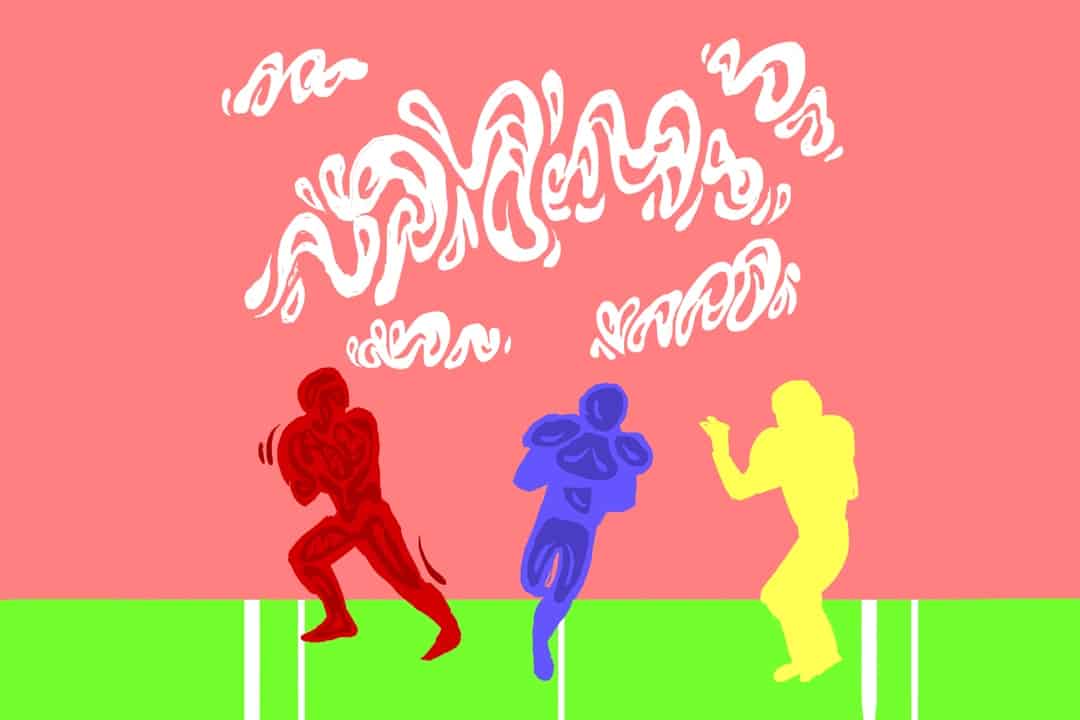The significance of the Washington Football Team — now called the Commanders — retiring their past name and logo is undeniable. But after an extensive line of demands for change and countless calls for recognition of the name’s damaging effects, it is hardly acceptable to believe this is the extent of our ability to make lasting reparations for our history.
In July 2020, the Washington Commanders announced the retirement of their name and logo following years of criticism from Indigenous people. Among them was Suzan Shown Harjo, of Cheyenne and Hodulgee heritage, a long-time activist for Indigenous rights for well over five decades and the lead plaintiff in a 1992 court case against the Washington Commanders.
Although this issue had garnered public attention since the late 1900s, it took economic pressure from major investors and sponsors for a change in Washington’s prejudicial rhetoric. Harjo and other activists faced unjust backlash for their work, with Harjo saying, “We were treated as if we were hooligans who had just conducted some sort of heinous operation against humanity.”
The name change was met with both support and backlash. Although those who oppose the change argue that the use of Indigenous names and mascots stems from support and honour for these groups, many Indigenous activists, scholars, and peoples argue that this usage misrepresents and trivializes Indigenous cultures and lives. University of Michigan Professor Stephanie Fryberg, who is a member of the Tulalip tribe of the Puget Sound region in the state of Washington, in an interview with The Ringer, said that the use of names such as the prior name of the Washington Commanders “is no different than the celebration of Thanksgiving or Christopher Columbus when they’re all based on misinformation, romanticization, and dehumanizing of Native people.”
In an interview with Politico, Fryberg emphasized the existence of underlying psychological effects from the usage of stereotypes, whether positive or negative. Fryberg said, “Being shown the mascot actually lowered [Indigenous] high schoolers’ self-esteem more than giving them negative statistics about [Indigenous communities], like high suicide rates, depression, dropout rates.” The normalization of integrating harmful expressions into the sports industry under the false notion of honour illustrates how easily we can feed into stereotypes without even realizing it. Should it be this simple to worsen our implicit bias?
In the three major sports leagues of the NFL, NHL, and MLB, franchises continue to use explicit Indigenous wording and imagery, such as the Kansas City Chiefs, Chicago Blackhawks, and Atlanta Braves. For example, the Braves choose to use the “tomahawk chop” during games as a fan activity. However, members of the Muscogee nation, whose historical homeland included part of Georgia, disagree with the use. Jason Salsman, a spokesperson for Chief David Hill of the Muscogee nation, was quoted in NBC news saying that the tomahawk chop is a caricature, not an accurate depiction of Indigenous culture.
The twisted establishment of these symbols sustains the appropriation of Indigenous cultures. These misrepresentations of Indigenous identities promote prejudicial associations between particular attributes and Indigenous peoples. The simple use of these names and logos have allowed for cultural appropriation to develop and fester, as the indifference of those in power illustrated their refusal to recognize the impact of their actions. The use of these names, imagery, and mascots give way to reinforcing stereotypes that originate in systematic oppression.
As we continue to make steps toward conciliation, it is clear that we must do more than acknowledge our wrongs and instead take action to create a safe place for Indigenous peoples. If franchises want these changes to mean more than an empty gesture, they cannot stop here, as more will be expected. Teams must work further to shift away from the appropriation of Indigenous identities and work further to change the systemic oppression and discrimination that the Indigenous communities face.
As a society, we must call on teams to support the growth of Indigenous cultural practices, including music, religion, and ceremony — such as through donations to Indigenous causes and by creating a platform for Indigenous activists and performers to let their voices be heard and amplified. It is critical to address harms caused by the cultural appropriation in team names and mascots, but we must also urge teams to create a larger impact.
In addition to advocating for the removal of harmful representations, franchises must dedicate time and resources to encourage education about Indigenous traditions, values, and heritage. Management for franchises must make a significant effort to make amends for the effects of their actions by encouraging education regarding various Indigenous cultures.
Over the years, the impact of sports teams’ cultural appropriation can be seen in the acceptance of these stereotypes, whether it is intentional or not. The Washington Commanders have taken a step toward acknowledging their wrongdoing, but more action must be taken. They must make efforts to advocate for other teams to recognize the harm of their cultural appropriation.
It is vital to recognize we can never make up for the suffering of the Indigenous communities throughout history. As teams like the Washington Commanders look to create an inclusive community for all, it cannot be done without the integration and acceptance of Indigenous cultures.


